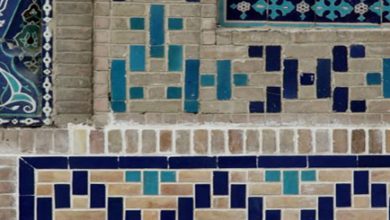DAUD AS – PART 2

Death of Daud AS
Daud AS was a possessive man and took great care of his family. When he went out he would lock the door and no man could enter the house until he returned. One day, he went out and locked the door as usual. Suddenly his wife came to see a man in the middle of the house and worried about Daud’s AS reaction when he came back to find the stranger there.
When Daud AS came home and saw the man standing in his house, he asked the man who he was. He replied: “I am the one who does not fear any king, neither could be barred by any hurdle.” Daud AS realised that he could only be the angel of death who had come to claim his soul.
Even though Daud AS was in possession of so much riches of the world, he did not cling on to this dunia the way rich people who normally do. He did not resist as the angel plucked to soul from his body, and thus he passed away.
Daud AS was so loved by the people that thousands flocked to pay their last respects to him. It was a hot day, so Sulaiman AS instructed the birds to provide shade. The birds formed a canopy with their wings to block the strong sun. Consistent with the ungrateful nature of Bani Israel, they then complained it was too hot, so Sulaiman (AS) commanded the birds to contract one wing, to allow some breeze through.
Usually Prophets and Messengers do not leave behind any wealth to be inherited by their children, but in the case of Daud AS, his son Sulaiman AS(who by the time of his father’s death, already demonstrated signs of prophethood) inherited both his kingdom and his prophethood.
Lessons to be learnt
Giving fair judgments
Allah SWT has commanded us to judge between the people in truth (i.e. based on the facts and circumstances of the matter, which should be assessed objectively, without fear or favour) rather than through our own desire. Islam is so beautiful – we are warned that when a judge passes a sentence based on his own desire (including judging others while under the influence of anger, fatigue, hunger, irritation or when immersed in personal problems), such unfair judgments would lead one astray from the way of Allah. This is why under Shariah, judges are subject to strict rules and not allowed to issue any judgment when they are in this state.
If we follow the majority of how people judge each other, it will definitely lead us to destruction. Look at the corruption amongst judges today, where the innocent are sentenced to jail or even to the gallows, and the oppressors are allowed to walk free. If only everyone realised that we will be judged of what we do, and the heavy penalties for issuing judgments based on our desires instead of the facts, we will refrain from 99% of what we do.
A Rightful Successor
Sulaiman (AS) constantly observed his father’s wisdom, and Daud AS trained him from a young age to observe when disputes were presented before him. This is the ideal quality of a parent, who leads by example rather than just words.
Most of us dream of leaving our legacy on earth, and for our children to inherit what we had accumulated. However, inheritance is usually in the form of wealth alone, and not in the form of goodness or wisdom. The story of Daud AS shows the importance of passing on the mission to propagate the message of Allah to the next generation, as well as to spread justice throughout the people. With Allah’s will, Sulaiman AS eventually exceeded his father both in kingdom and ability, but more importantly, in justice and wisdom.
Love of the Hereafter
Majority of the rich people, at the time of death, do not want to let go of this world and their possessions. Their spiritually hearts are too attached to their wealth to let go, even when the Angel of Death has arrived. Daud AS was different, despite his wealth, he calmly let the Angel of Death take his soul, because he was prepared for a better and more enduring hereafter.


![Photo of ADAM AS [ PART 1]](/wp-content/uploads/2020/09/d6086de322f98f66cc694f32ea284557_XL_0-390x220.jpg)
![Photo of ADAM AS [ PART 2 ]](/wp-content/uploads/2020/09/106117794.Gu9ZCkGy-390x220.jpg)
![Photo of NUH AS [ PART 1]](/wp-content/uploads/2020/09/130243396.pTC5gkej-390x220.jpg)